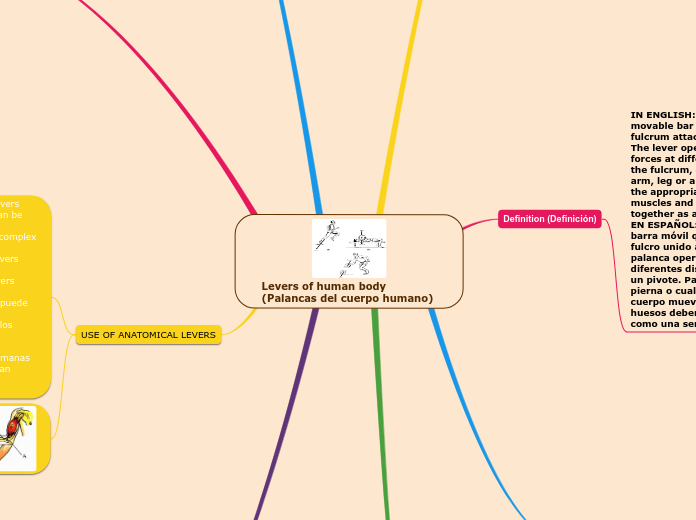arabera Dayana Marcela Ascuntar 5 years ago
1981
Levers of human body (Palancas del cuerpo humano)

arabera Dayana Marcela Ascuntar 5 years ago
1981

Honelako gehiago
Type in the name of the book you have read.
The main idea is what the book is mostly about.
Some tips to find out the main idea of a book easier:
Type the names of the book characters. Start with the main character.
Draw arrows to represent the relationship between them and if it is possible write on them what they represent for each other (if they are relatives, friends, lovers, enemies etc.)
What is the reason why the author wrote the book?
Who is the author of the book? Type in his/her name.
Take notes while you read the book. Type here the resources, books, or websites that the author mentioned and you want to check out later.